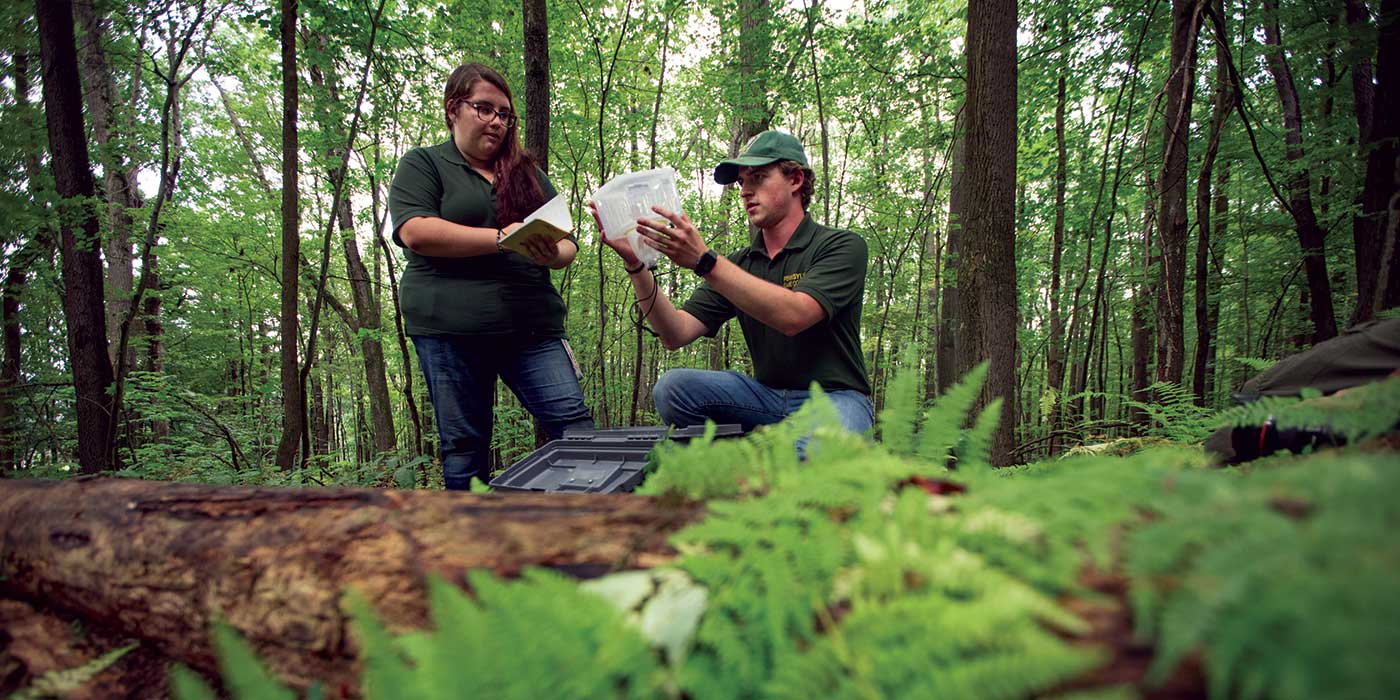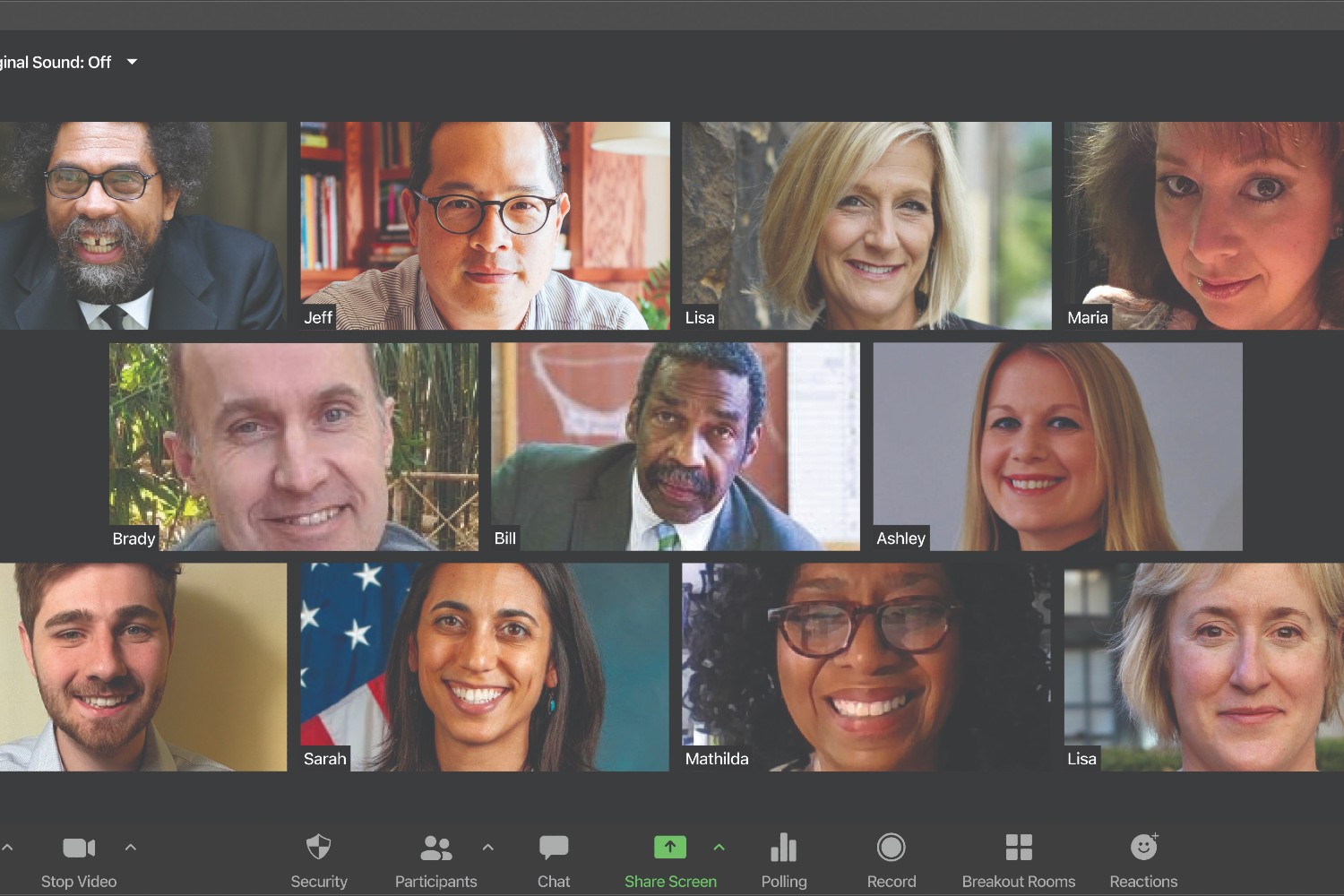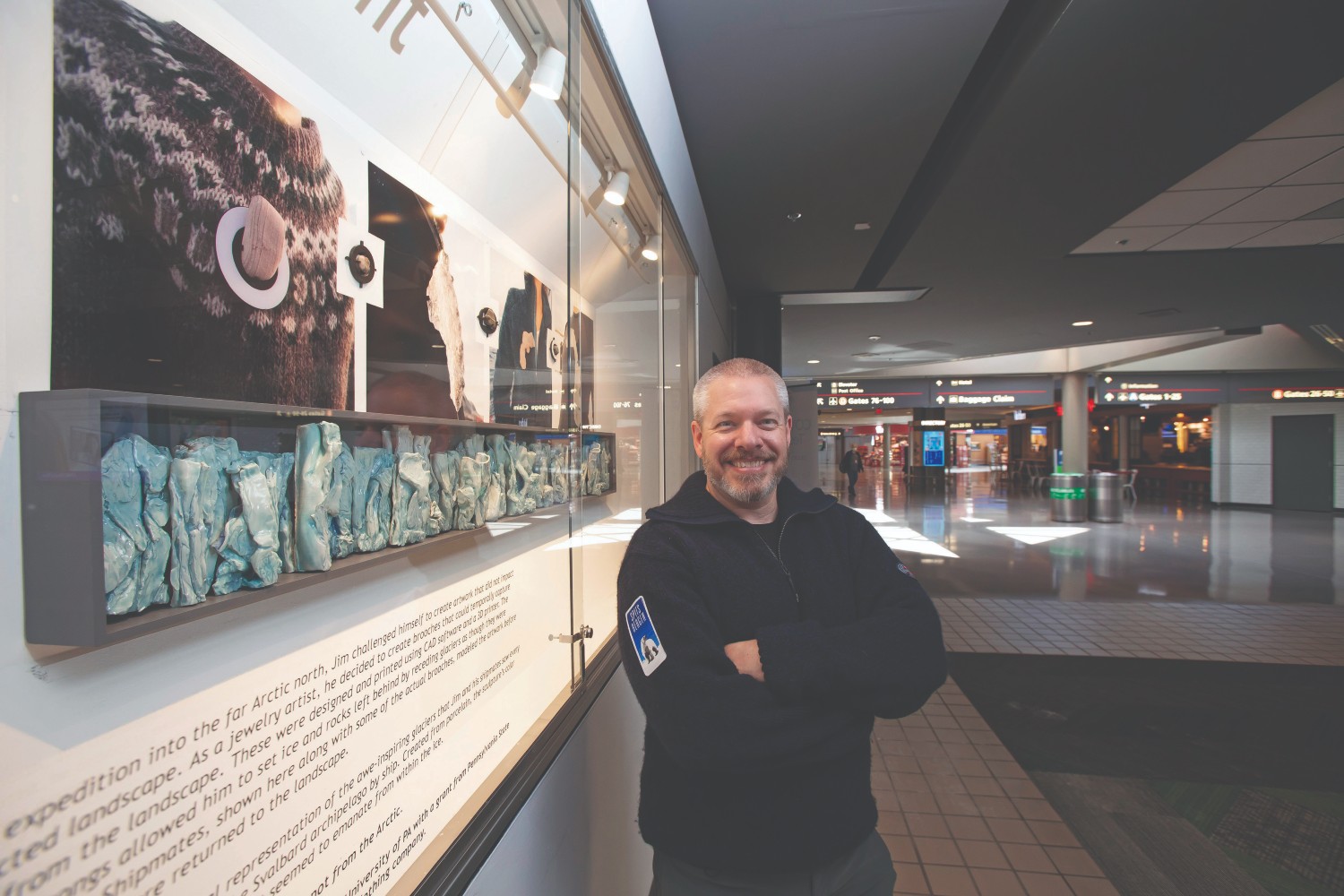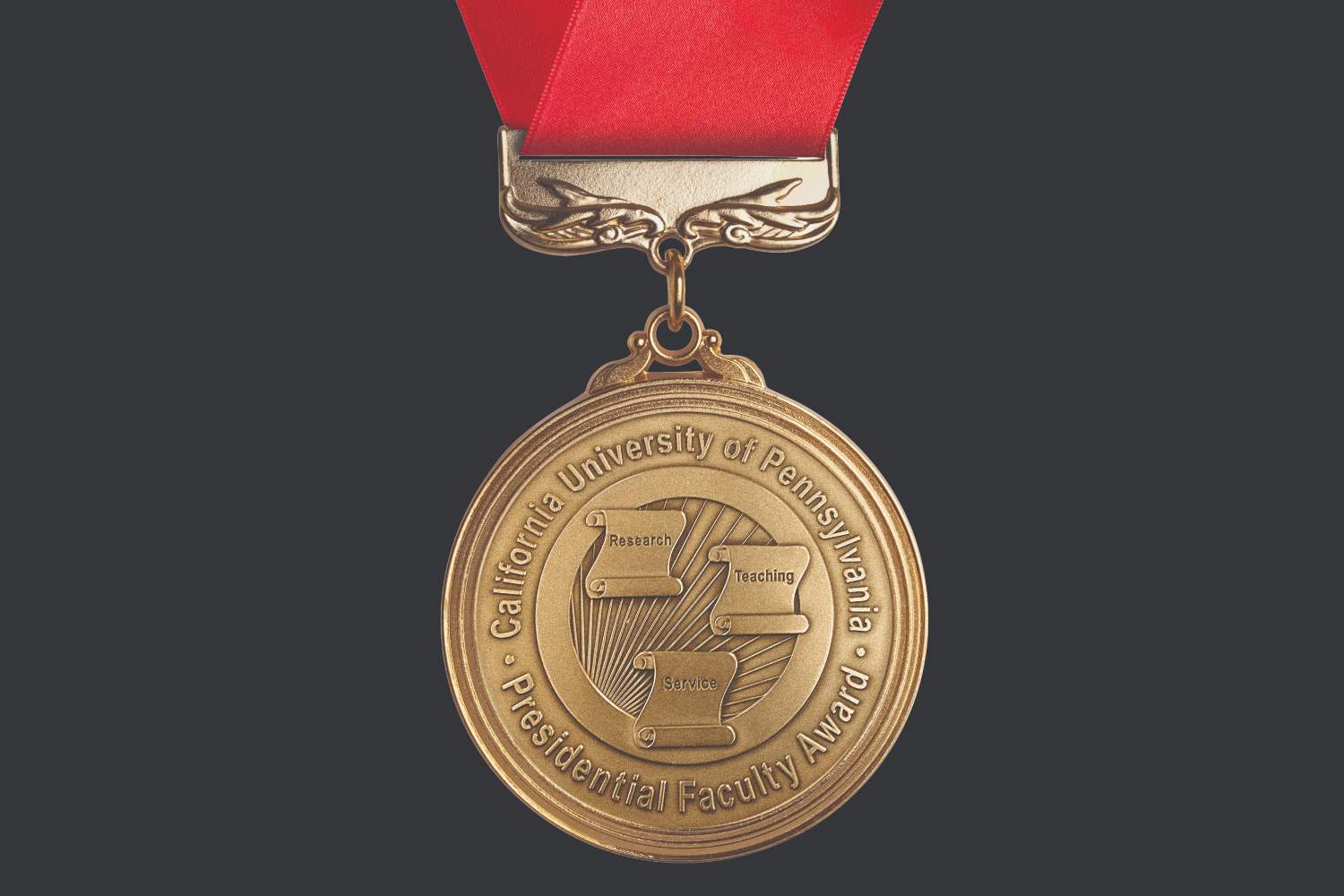The recipe is a simple stew: grass clippings, water,black trash bag. Once the decomposed brew is added to traps, it’s all over fora certain type of mosquito in the Laurel Mountains near Boswell, Pa.
They’re caught, put on dry ice and shipped to a lab inHarrisburg as part of an investigation into the impact of the mosquito-borneWest Nile virus on ruffed grouse populations in Pennsylvania.
This summer, Cal U seniors Nikki Williams and Kyle Lubak spent two days a week baiting traps and collecting samples as part of their internship with the Southwest Region of the Pennsylvania Game Commission.
It was part of a comprehensive experience for the students,who are studying fisheries and wildlife biology.
Other hands-on learning opportunities included banding barn owls in Somerset County to learn about their flight patterns, teaching children how to build bluebird boxes, and developing a program on foxes for a community group.
Data from the students’ mosquito samples will be used by LisaWilliams, Game Commission biologist for ruffed grouse and webless migratory game birds. She’s developing strategies to reverse the years-long decline in the populations of grouse, the state bird of Pennsylvania.
“We broke the story of West Nile’s impact on grouse in 2015,and it has been a race since then to figure out how to manage and restore populations,” Williams says.
“Using the data that the students collected, we are building a decision tool for our foresters and other land managers. We now have an idea at which elevations and habitats the disease risk is low and grouse-recovery ability is high. This allows us to focus our management efforts.”
As future fisheries and wildlife biologists, Lubak andWilliams relished the chance to contribute to the project.
“What I learned in class helped me understand what the biologists talked to us about,” Lubak says. “It prepared me for this mosquito-collection project, to see how the data we collected from the traps at various elevations can be put together as part of a bigger picture of what’s going on with the grouse population.”
“The professional experience I got during this internship is going to be phenomenally helpful in the long run,” Williams says.
“I now have experience in how to run a project and collect data carefully and efficiently. This is definitely going to help me get a job.I also have a tremendous sense of pride to have helped with this important WestNile virus project.”
Williams appreciates the help.
“These students were involved in cutting-edge research,” she says. “We don’t have a lot of data from remote woodland systems.
“It was wonderful to have competent students we could train to work independently at a young age. It’s a testament to them and to Cal U.”








